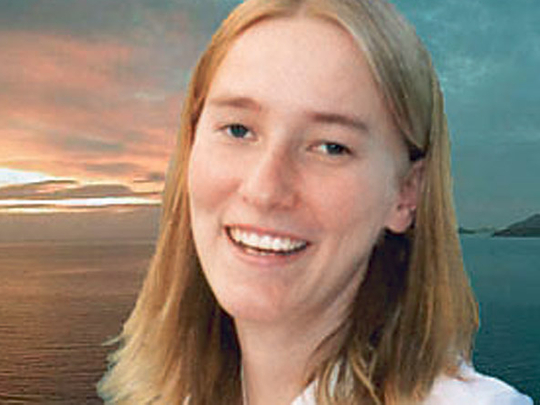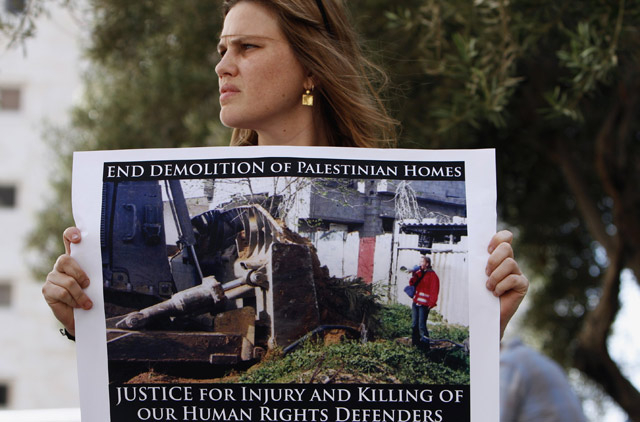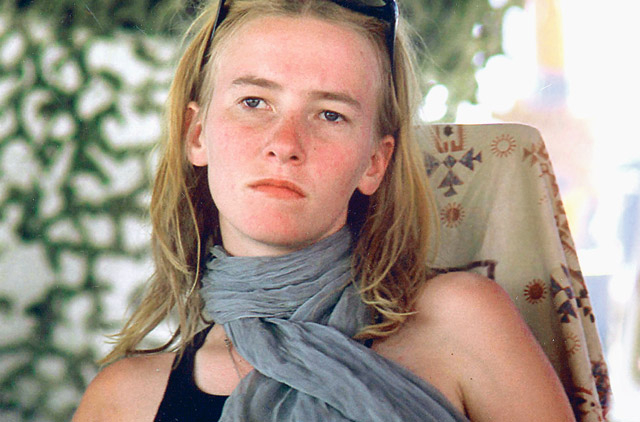
Gaza: An Israeli court ruled Tuesday that the military was not at fault for killing a US activist crushed by an army bulldozer during a 2003 demonstration, rejecting a lawsuit filed by her parents.
The bulldozer driver has said he didn’t see 23-year-old Rachel Corrie, a pro-Palestinian activist, who was trying to block the vehicle’s path during a demonstration in the Gaza Strip against the military’s demolition of Palestinian homes.
The military deemed her March 2003 death an accident, but Corrie’s parents said the driver acted recklessly and filed a civil lawsuit two years later.
Explaining the district court’s ruling, Judge Oded Gershon said Corrie “put herself in a dangerous situation” and called her death “the result of an accident she brought upon herself.” He said the military conducted a proper investigation and rejected the Corrie family’s request for a symbolic $1 (Dh3.6) in damages and legal expenses.
The 62-page ruling found no fault in the internal Israeli military investigation which cleared the driver of the bulldozer which crushed Corrie to death in March 2003. The judge said the driver could not have seen the activist from the cab of the bulldozer.
Corrie could have saved herself by moving out of the zone of danger “as any reasonable person would have done,” he said. The area was a combat zone, and the US government had warned its citizens not to go there.
International activists were intent on obstructing the actions of the Israeli military and acting as human shields “to protect terrorists.”
Corrie was killed on 16 March 2003, crushed under an Israeli military bulldozer while trying to obstruct the demolition of a Palestinian home in Rafah, on the Gaza-Egypt border.
Corrie’s family, who flew in from the US for the verdict, lamented the court’s ruling. Their lawyer, Hussain Abu Hussain, said he would appeal the ruling to Israel’s Supreme Court.
“We are of course, deeply saddened and deeply troubled by what we heard today,” said her mother, Cindy Corrie of Olympia, Washington. “I believe this was a bad day. Not only for our family but for human rights, the rule of law, and also for the country of Israel.”
Corrie’s sister, Sarah, held up a picture of her sister lying lifeless in bulldozer tracks. The family’s lawyer, Hussain Abu Hussain pointed at it: “How did the bulldozer not see her?” he asked. To say that the driver did not see her “is lies to the living and also lies to the dead.”
The local human rights organisations expressed their frustration after they heard the verdict.
Raji Al Sourani, head of the Palestinian Centre for Human Rights, (PCHR) said: “The Israeli occupation keeps on covering up crimes done by its forces against the Palestinian citizens and international supporters in the Palestinian territories.”
The PCHR provided a detailed evidence on the crime of killing Corrie on the March 16 2003, in Rafah. According to the centre, four activists and other residents witnessed the murder.
Al Sourani added: “We must not accept Israeli injustice; we therefore take this case to an international court to receive justice which the Israeli courts did not show.”
Husain Zorob, a Palestinian activist against the occupation in Rafah who was associated with Corrie in her fight for justice to Palestinians, said: “She was a exceptional person; she loved children. I truly felt bad when she died and now feel even worse because of the injustice of the Israeli verdict.
The US government believed the military investigation was flawed, she added. Last week, the US ambassador to Israel, Dan Shapiro, told the Corrie family that Washington remained dissatisfied with the inquiry.
With additional inputs from agencies














